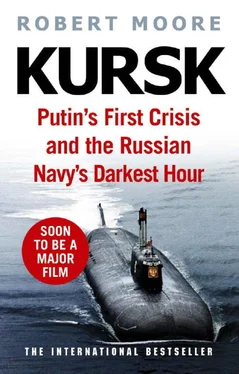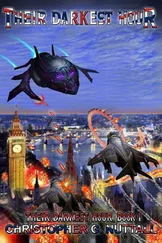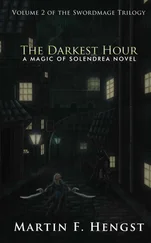On New Year’s Day 2000, on the stroke of midnight, as one millennium came to a close and another came racing into view, power in the world’s largest nation was passed from a visibly ill leader, slowed by age and alcohol, to a barely known KGB apparatchik. When Vladimir Putin succeeded Boris Yeltsin, and the transfer was given legitimacy in the presidential election of March 2000, it was described as the first democratic transfer of executive power in Russia for a thousand years. But even by the opaque standards of the Kremlin, the new Russian leader was an enigma. He had only emerged from obscurity as Yeltsin’s unlikely Prime Minister a few months earlier. Now the Kremlin and the sprawling, dysfunctional Russian Empire was his. Vladimir Vladimirovich Putin was well-understood only to a small number of the Russian elite, mainly to power-brokers in his hometown of St Petersburg, and to senior intelligence officers in the former KGB and its successor agency, the FSB.
On 10 August, one hundred days after his grand inauguration in the Kremlin’s Andreyevsky Hall, the country’s new leader was in the presidential dacha , or summer house, on Russia’s Black Sea coast. On the same day, the Kursk was being nudged from its pier by tugboats into the much colder inlets of the Barents. As the sailors settled into their berths and work stations aboard the submarine, Vladimir Putin was hosting barbeques in Sochi and enjoying waterskiing.
In the days that followed, Russians would witness with considerable shock the Kremlin’s stumbling and inept response to the crisis. There was every expectation that Putin would provide strong leadership. But his first instincts revealed the reflexes of a KGB officer, not a president. The leader who had gained meteoric popularity for his ruthless conduct of the Second Chechen War was suddenly seen as out of touch and weak, disappearing from view and failing to visit the scene for ten long days. This verdict was potentially devastating for a president who had been packaged and sold to the Russian people as decisive and dynamic. The web of deceptions and lies that followed the disaster held the Northern Fleet and President Putin himself up to ridicule.
But if his instincts completely failed him at first, Putin’s ability to learn the lessons from that summer are equally startling. Hidden within the Kursk tragedy are the first clear signs that Putin had the ruthlessness and the cunning to crush rival voices and dominate Russian politics. Vladimir Putin, still entrenched in the Kremlin nearly two decades later, revealed himself to be a brilliant student of media manipulation. In August 2000 he made grave mistakes. He was outmanoeuvred by independent forces. It would not happen a second time.
Never again would Putin allow a courageous and emboldened domestic media to probe and question his conduct. Never again would he allow individual Russians to coalesce and wage a campaign against him or the military High Command. Never again would he allow investigative journalism to flourish and shape the agenda. Putin’s need to control the flow of information, and to weaponize it for whatever purpose suited him and the Russian state, instilled in him as an intelligence agent, would come to define his presidency. Boris Kuznetsov, the lawyer who tried to hold the Kremlin to account over the Kursk tragedy, and who was later forced to flee the country, has described the response to the disaster as President Putin’s ‘First Lie’.
The television station, NTV, that so powerfully advocated for the Kursk families and for the acceptance of an international rescue mission, was soon seized by Kremlin loyalists. Another channel, ORT, which was controlled by the controversial oligarch Boris Berezovsky, was also brought to heel. Those two networks had made the fatal error of challenging Putin’s competence and questioning his empathy for the lost sailors and their families. The Russian journalists who had campaigned for transparency and accountability were defeated. Elena Milashina, one of the last investigative reporters in Moscow who even today still dares to probe the Kursk events, calls August 2000 ‘the beginning of the end of independent journalism in Russia’.
There were further naval accidents in the years following the Kursk disaster. The nuclear-powered submarine K-159 caught fire as it was towed for decommissioning in 2003, and nine sailors died. Other nuclear submarines in Russia’s Northern and Pacific Fleets had mishaps, but each time Putin was able to deflect blame or smother the news, thanks to a media he now controlled.
When asked on CNN four weeks after the tragedy what exactly had happened aboard the Kursk , Putin replied laconically, and with a smirk that was widely criticized, ‘It sank’. What also sank from view in August 2000 was the chaotic but intoxicating atmosphere of press freedom and public activism that was building in the new Russia. Putin quickly, and correctly, recognized those twin movements as the greatest threats to his grip on power.
The Kursk submarine disaster was also a searing lesson in disaster management. The grief Putin confronted, and the personal humiliation he faced when he met the families of the lost sailors in the naval garrison town of Vidyaevo on 22 August 2000, would shape his response to every subsequent crisis.
In the Moscow theatre siege two years later, he adopted an entirely different strategy to the one that failed him in Vidyaevo. This time, in place of the unsteady, ill-prepared political novice of 2000, Putin was much more aggressive and personally engaged. Having ordered elite counter-terrorist troops to storm the theatre, he watched as triumph turned to tragedy. The decision to pump poison gas into the theatre auditorium, intended to disable the Chechen militants, suffocated over a hundred hostages. Putin’s response was to tighten his grip on Chechnya and complete his take-over of NTV, while also asking Russians for forgiveness. Such a blend of ruthlessness and humility served him well. He emerged politically unscathed.
In 2004, after the horror of the Beslan school terrorist attack, when over three hundred people were killed, many of them children, Putin again used the crisis to consolidate power and gain further control over Russia’s last bastions of independent media.
But the new Putin strategy encountered a significant challenge in March 2018, after the shopping mall fire in the Siberian city of Kemerovo that took more than sixty lives. The president faced a burst of spontaneous anger remarkably similar to the public reaction to the loss of the Kursk . In Kemerovo’s main square there were the same raw emotions, the same sense among grieving families that official corruption and the indifference of the state was ultimately to blame. As Putin headed to the city to assuage the anger, the echoes of his harrowing visit to Vidyaevo in 2000 were inescapable. He tried to avoid the same mistakes he had made during the Kursk debacle. This time, he arrived in Kemerovo within forty-eight hours of the tragedy and was seen haranguing local officials, and demanding that prosecutors pursue criminal charges. In contrast to his actions in Vidyaevo, he also avoided the political peril of meeting with the families in a situation outside of his control. The Kremlin’s almost complete grip on the media paid dividends, with Russian TV stations largely ignoring the local fury and focusing instead on the president’s carefully choreographed visit.
Putin also extended the lessons of information manipulation beyond Russia’s borders. He would approve of efforts to direct disinformation straight into the adversary’s camp, trying to shape outcomes that were favourable to Moscow. The Kremlin was only seeking to achieve overseas what had been successful at home. Influencing America’s 2016 presidential election, and sowing political discord in the United States and elsewhere, was an extension of lessons learned as a KGB operative and honed that formative first summer as Russian president.
Читать дальше












